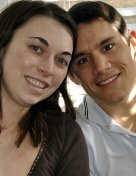234 Goodman Street, Cincinnati, Ohio 45219 | (866) 941-UCNI (8264)
Cerebrovascular Center
Prestigious Princeton (Stroke) Conference To Be Hosted by UC, UC Health
The University of Cincinnati College of Medicine and UC Health will host the Princeton Conference, the premier and oldest academic stroke and cerebrovascular disease conference in the world, May 17-19, at the Cincinnati Hilton Netherland Plaza.
The conference, which occurs every two years, will bring together 160 invited stroke physicians and scientists, including most of the leading stroke researchers in North America and a few from Europe.
The event is supported by the National Institute of Neurological Disorders and Stroke (NINDS).
Principal investigators of the conference are Joseph Broderick, MD, the Albert Barnes Voorheis Professor and Chair of Neurology, and Dawn Kleindorfer, MD, Professor of Neurology. Dr. Broderick is also Research Director of the UC Neuroscience Institute, a collaborative, state-of-the-art consortium of nine disease-focused centers.
“The conference will feature a great interchange of science,” Dr. Broderick says. “It’s not a typical meeting where people talk for an hour and then someone asks questions for two minutes. Basically, you talk for 10 minutes and then people will argue the question for the next 15 or 20. You have more interaction, and that’s what I think makes it especially interesting and fun.”
Randy Seeley, PhD, the Donald C. Harrison Professor and Director of the Cincinnati Diabetes and Obesity Center, will give the keynote lecture on opening night. Entitled “The Big Talk,” his presentation will explore the science of obesity, which has a large impact on stroke and cardiovascular disease.
For additional information, contact Dr. Kleindorfer at .
* * *
The UC Neuroscience Institute, a regional center of excellence, is dedicated to patient care, research, education, and the development of new treatments for stroke, brain and spinal tumors, epilepsy, traumatic brain and spinal injury, Alzheimer’s disease, Parkinson’s disease, multiple sclerosis, neuromuscular disorders, disorders of the senses (swallowing, voice, hearing, pain, taste and smell), and psychiatric conditions (bipolar disorder, schizophrenia, and depression).
 RSS Feed
RSS Feed
